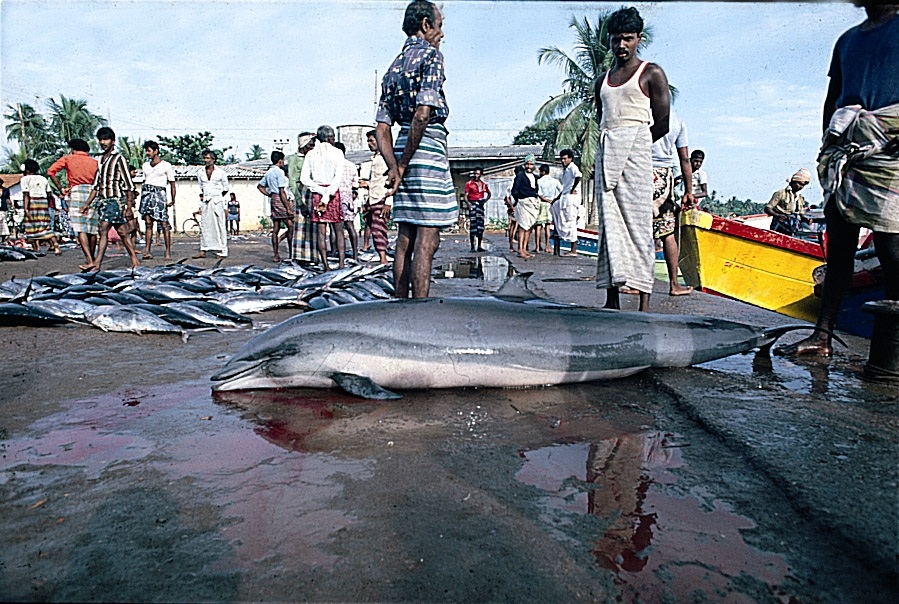
© AnoukIlangakoonObscure species such as Fraser’s dolphin (seen here in a fishing market in Sri Lanka) are being increasingly utilized as food in areas impacted by food insecurity and/or poverty.
Fillet of dolphin? Polar bear steak? As world population increases, people in coastal poverty-stricken areas are turning to the ocean for their meals, consuming marine mammals such as dolphins and seals, new research suggests.
Since 1990, at least 87 species of
marine mammals - including dolphins, porpoises and manatees - have been served up in 114 countries. They are the victims of hunting and even commercial fishing operations, where they are sometimes caught accidentally, the researchers said.
The fishing of larger marine mammals, like humpback whales, is strictly regulated and monitored; but the extent to which these smaller warm-blooded marine species, including dolphins and seals, are caught, killed and eaten has been largely unstudied and unmonitored.
"International regulatory bodies exist to gauge the status of whale populations and regulate the hunting of these giants," study researcher Martin Robards, of the Wildlife Conservation Society, said in a statement. "These species, however, represent only a fraction of the
world's diversity of marine mammals, many of which are being accidentally netted, trapped, and - in some instances - directly hunted without any means of tracking as to whether these off-takes are sustainable."
